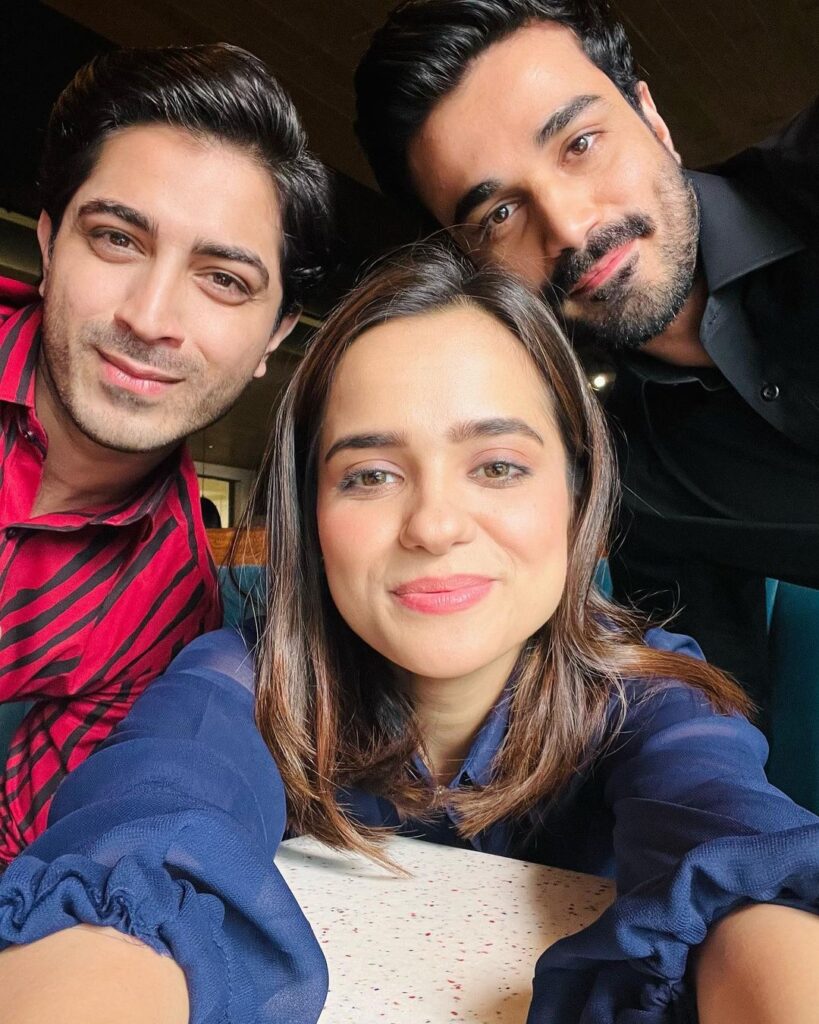Written by: Nadia Akhter
Directed by: Syed Wajahat Hussain
Produced by: 7th Sky Entertainment
Channel: Geo Entertainment
I finished watching Mannat Murad on Geo, opting for binge-watching instead of weekly tuning. This different approach gives me a unique perspective compared to social media discussions. In the last episode, Mannat and Murad’s troubled marriage took a positive turn, with Murad finally supporting Mannat, resolving their challenges. The second last episode hinted at a happy ending. Despite Niggi not achieving her desire, Fazilat’s happy ending was a pleasant surprise. Mannat and Murad’s journey highlights the importance of communication and humility in marriage.
Engaging Storyline Unfolds
Pakistani dramas usually focus on marital problems, but Mannat Murad stands out by addressing these issues uniquely. While many viewers blame Murad (which is fair), my perspective differs. The portrayal of Mannat and Murad’s married life highlights a broader issue-the influential role of elders in marriage dynamics. In a society where adults like Mannat and Murad are often seen as ‘children’ in their homes, early married life poses a significant challenge. This journey becomes even tougher with the influence of family dynamics from both sides.
Navigating the Trials of Newlywed Life
Mannat and Murad’s journey emphasized the importance of allowing newlyweds to build their special connection without unnecessary interference. Murad’s mother and Mannat’s brother played traditional family roles, showcasing complexities that can hinder the natural development of a newly married couple’s bond. The story highlighted the real challenge: not ignoring extended family but finding a delicate balance between support and autonomy.
Mannat and Murad’s story reminds us of the importance of approaching marriage with realistic expectations and a commitment to nurturing the relationship. If they had been more prepared and genuinely aimed for a lasting partnership instead of expecting an easy journey, there would have been fewer disappointments. The script highlights the significance of emotional intelligence and effective communication in a marital relationship. Both Mannat and Murad lacked maturity, with Murad serving as a cautionary example of how immaturity and a lack of transparency can harm a marriage. This prompts reflection on how maturity and communication are crucial for a healthy relationship. Social media discussions about Murad’s character fulfill the purpose of showcasing the immature side and initiating meaningful reflections.
Confronting Realities
While highlighting Murad’s imperfections, the writer intentionally avoided depicting him as entirely negative. The narrative hinted at the possibility of growth, suggesting that his flaws were not insurmountable obstacles. This approach allows viewers to anticipate positive transformation and a realization of responsibilities. Despite his flaws, Murad’s journey resonated with me, and I found myself rooting for his personal growth. At times, it seemed Mannat could have made more effort to understand Murad’s situation, considering she was aware of what she was getting into.
In my view, Mannat Murad proved to be a thought-provoking drama with a straightforward message for individuals like Razia Chaudhry and Nafees Bhai-to recognize the transformative impact of acceptance and the liberating act of letting go for the well-being of their loved ones. On the flip side, Sabiha’s character showcased the expected role of elders in such situations. She offered steadfast support and valuable advice where Mannat needed it, serving as an ideal representation of the guidance and assistance expected from elders.
This drama reminded everyone, especially those in situations like Mannat and Murad, that marriage doesn’t magically fix everything overnight. It challenges the misconception that marriage is an instant ‘happy ending’ and emphasizes the ongoing effort and steadfast commitment it requires. I believe some of Murad’s entitled dialogues in recent episodes didn’t fit well with his character. While they might stem from frustration, they could have been omitted.
Memorable Characters and Standout Performances
Even though Talha Chahour is already a great actor, Mannat Murad is the project that will bring him more recognition in the industry. Iqra Aziz gave an outstanding performance, using the expressiveness of her beautiful eyes perfectly. Her portrayal was flawless, maintaining brilliance from the beginning to the end. Uzma Hassan chose an unconventional role again, breaking stereotypes with her effortless performance. With remarkable finesse, she highlighted the positive aspects of her character. I have to admit, at first, I found Isra Ghazal’s performance and character a bit irritating. However, as the story progressed and her screen time lessened, I started appreciating how well she brought the character to life, making it relatable for many viewers. Noor-ul-Hassan convincingly played the over-possessive brother, capturing the struggle to let go. Although, his hairstyle was a noticeable distraction throughout.

It was enjoyable to see Rabya Kulsoom in a stylish role, portraying a strong character. She nailed both her appearance and performance with precision. Sachal Afzal was very likable as a trouble-free, supportive, and sensible friend. These characters provided a refreshing break from the toxicity associated with Murad, adding a positive and enjoyable aspect to the story. Sana Nadir also delivered a commendable performance as Niggi. Tipu Sharif’s excellent portrayal as the cool brother showcased his versatility and talent.

While not perfect in script and execution, Mannat Murad turned out to be a meaningful and enjoyable drama. The unique storytelling and convincing performances made it a worthwhile watch. However, Geo Entertainment should reduce the use of flashback scenes, unless they assume most viewers have short-term memory loss. This impacts the entertainment and disrupts the flow of the dramas, becoming quite annoying due to repetition.




Add comment